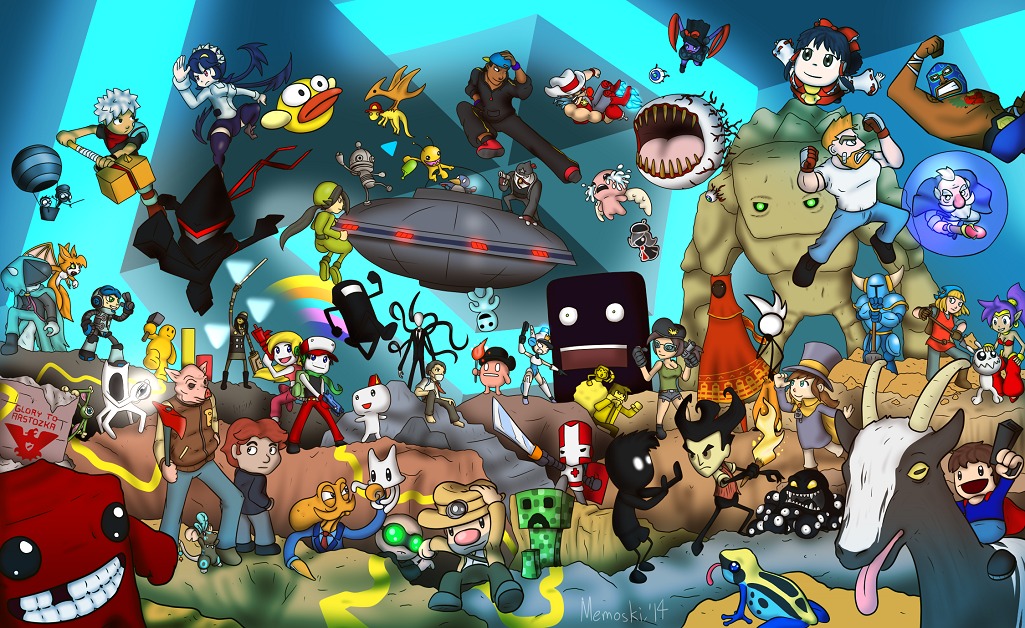In the ever-evolving landscape of the gaming industry, independent game developers, often referred to as “indie developers,” continue to play a pivotal role. These creative and innovative teams have brought us some of the most memorable and groundbreaking games in recent years. In this article, we will explore the future of indie games, analyzing current trends and market dynamics that are shaping the indie gaming scene.
The Rise of Indie Games
A Flourishing Ecosystem
Indie games have grown from humble beginnings into a thriving ecosystem. With accessible development tools, digital distribution platforms, and crowdfunding options, indie developers can now bring their visions to life more easily than ever before. This has led to a surge in indie game releases across various genres.
Critical and Commercial Success
Many indie games have achieved both critical acclaim and commercial success. Titles like “Hollow Knight,” “Celeste,” and “Stardew Valley” have captured the hearts of players worldwide, proving that indie games can compete with larger, more established studios in terms of quality and engagement.
Diverse and Innovative Gameplay
Indie developers are known for their willingness to explore new ideas and gameplay mechanics. As a result, indie games often push the boundaries of traditional gaming experiences. From narrative-driven adventures to experimental art projects, indie games offer diversity and innovation.
Market Trends and Analysis
Digital Distribution Dominance
Digital distribution platforms, such as Steam, Epic Games Store, and indie-focused platforms like itch.io, have become the primary distribution channels for indie games. This shift has reduced the barriers to entry and allowed indie developers to reach a global audience without the need for physical distribution.
Crowdfunding and Early Access
Crowdfunding platforms like Kickstarter and Fig have become essential for many indie developers. They provide a means for raising funds and gauging interest in a game concept before production begins. Additionally, early access models on platforms like Steam allow developers to engage with players during the game’s development, shaping its evolution based on player feedback.
Indie Game Awards and Festivals
Indie game awards and festivals, such as the Independent Games Festival (IGF) and IndieCade, have gained prominence. These events celebrate indie developers’ creativity and provide exposure to potential players and publishers. Winning or being nominated for such awards can significantly boost a game’s visibility.
Future Trends and Opportunities
Accessibility and Inclusivity
The future of indie games will likely focus on making gaming more accessible and inclusive. Developers are increasingly prioritizing features like customizable controls, subtitles, and options for diverse player experiences. This trend ensures that a broader audience can enjoy indie games.
Cross-Platform Play
Cross-platform play, where players on different devices can play together, is expected to become more common in indie games. Developers are leveraging technologies and platforms that support cross-play to enable friends to connect and play regardless of their gaming setup.
Continued Innovation
Indie developers will continue to push the boundaries of gaming innovation. Emerging technologies like virtual reality (VR), augmented reality (AR), and cloud gaming will provide new avenues for creativity. These technologies will enable developers to explore novel gameplay experiences and storytelling techniques.
Challenges Ahead
Market Saturation
As the indie game market becomes more crowded, discoverability and standing out from the competition pose significant challenges. Indie developers will need effective marketing strategies and unique selling points to succeed in this competitive landscape.
Financial Stability
Maintaining financial stability remains an ongoing concern for indie developers. The unpredictability of game development, coupled with limited resources, can lead to financial strain. Sustainable business models and careful budgeting are crucial for long-term success.
Conclusion
The future of indie games is bright and filled with exciting opportunities. Indie developers will continue to captivate players with their creativity, innovation, and dedication to unique gaming experiences. As the gaming industry evolves, indie games will play an integral role in shaping the medium’s future, providing fresh perspectives and pushing the boundaries of what is possible in interactive entertainment.

